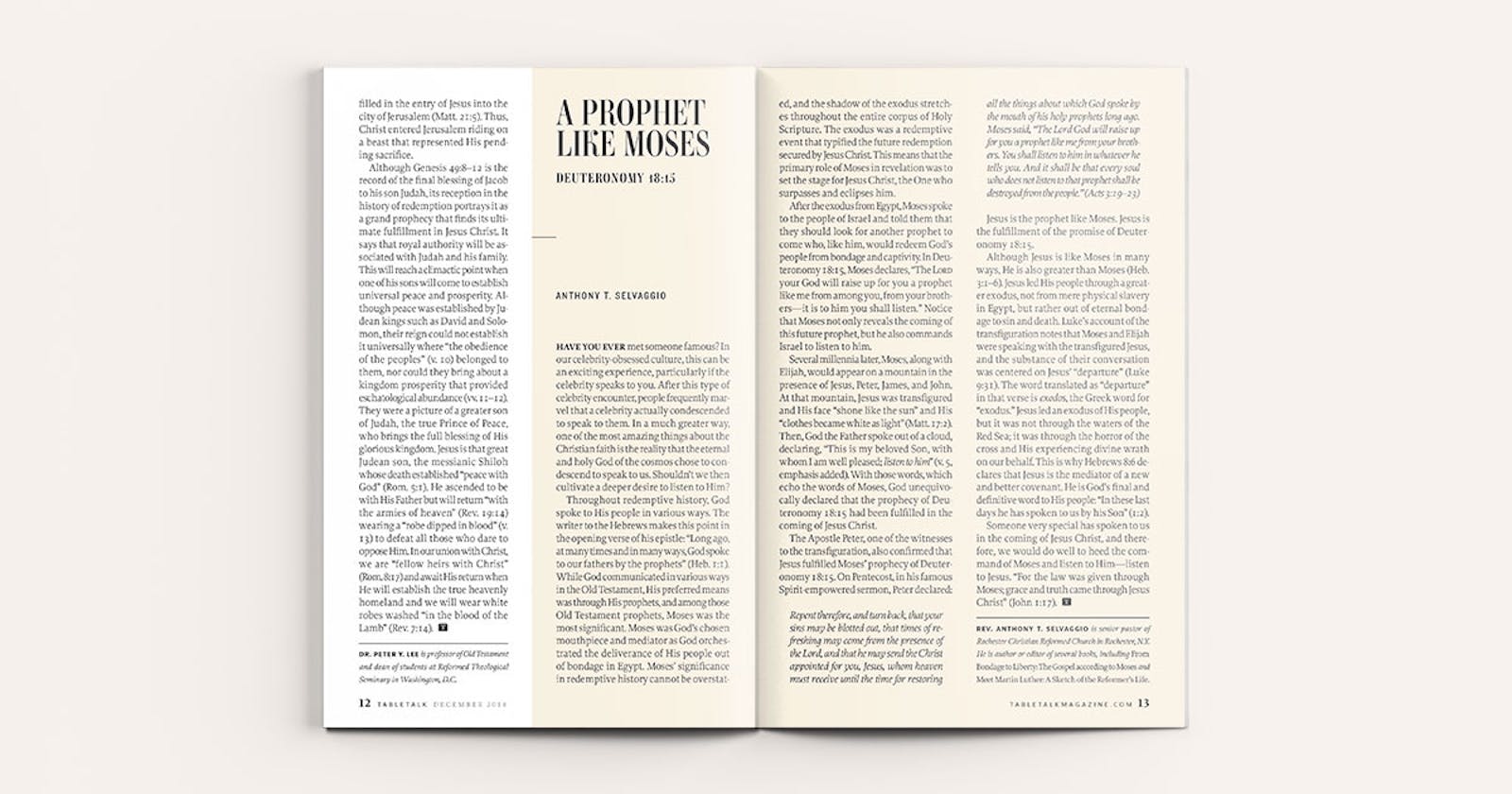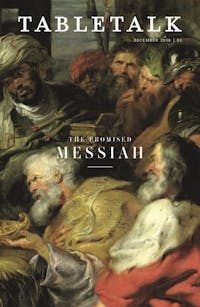
Request your free, three-month trial to Tabletalk magazine. You’ll receive the print issue monthly and gain immediate digital access to decades of archives. This trial is risk-free. No credit card required.
Try Tabletalk NowAlready receive Tabletalk magazine every month?
Verify your email address to gain unlimited access.
Have you ever met someone famous? In our celebrity-obsessed culture, this can be an exciting experience, particularly if the celebrity speaks to you. After this type of celebrity encounter, people frequently marvel that a celebrity actually condescended to speak to them. In a much greater way, one of the most amazing things about the Christian faith is the reality that the eternal and holy God of the cosmos chose to condescend to speak to us. Shouldn’t we then cultivate a deeper desire to listen to Him?
Throughout redemptive history, God spoke to His people in various ways. The writer to the Hebrews makes this point in the opening verse of his epistle: “Long ago, at many times and in many ways, God spoke to our fathers by the prophets” (Heb. 1:1). While God communicated in various ways in the Old Testament, His preferred means was through His prophets, and among those Old Testament prophets, Moses was the most significant. Moses was God’s chosen mouthpiece and mediator as God orchestrated the deliverance of His people out of bondage in Egypt. Moses’ significance in redemptive history cannot be overstated, and the shadow of the exodus stretches throughout the entire corpus of Holy Scripture. The exodus was a redemptive event that typified the future redemption secured by Jesus Christ. This means that the primary role of Moses in revelation was to set the stage for Jesus Christ, the One who surpasses and eclipses him.
After the exodus from Egypt, Moses spoke to the people of Israel and told them that they should look for another prophet to come who, like him, would redeem God’s people from bondage and captivity. In Deuteronomy 18:15, Moses declares, “The Lord your God will raise up for you a prophet like me from among you, from your brothers—it is to him you shall listen.” Notice that Moses not only reveals the coming of this future prophet, but he also commands Israel to listen to him.
Several millennia later, Moses, along with Elijah, would appear on a mountain in the presence of Jesus, Peter, James, and John. At that mountain, Jesus was transfigured and His face “shone like the sun” and His “clothes became white as light” (Matt. 17:2). Then, God the Father spoke out of a cloud, declaring, “This is my beloved Son, with whom I am well pleased; listen to him” (v. 5, emphasis added). With those words, which echo the words of Moses, God unequivocally declared that the prophecy of Deuteronomy 18:15 had been fulfilled in the coming of Jesus Christ.

The Apostle Peter, one of the witnesses to the transfiguration, also confirmed that Jesus fulfilled Moses’ prophecy of Deuteronomy 18:15. On Pentecost, in his famous Spirit-empowered sermon, Peter declared:
Repent therefore, and turn back, that your sins may be blotted out, that times of refreshing may come from the presence of the Lord, and that he may send the Christ appointed for you, Jesus, whom heaven must receive until the time for restoring all the things about which God spoke by the mouth of his holy prophets long ago. Moses said, “The Lord God will raise up for you a prophet like me from your brothers. You shall listen to him in whatever he tells you. And it shall be that every soul who does not listen to that prophet shall be destroyed from the people.” (Acts 3:19–23)
Jesus is the prophet like Moses. Jesus is the fulfillment of the promise of Deuteronomy 18:15.
Although Jesus is like Moses in many ways, He is also greater than Moses (Heb. 3:1–6). Jesus led His people through a greater exodus, not from mere physical slavery in Egypt, but rather out of eternal bondage to sin and death. Luke’s account of the transfiguration notes that Moses and Elijah were speaking with the transfigured Jesus, and the substance of their conversation was centered on Jesus’ “departure” (Luke 9:31). The word translated as “departure” in that verse is exodos, the Greek word for “exodus.” Jesus led an exodus of His people, but it was not through the waters of the Red Sea; it was through the horror of the cross and His experiencing divine wrath on our behalf. This is why Hebrews 8:6 declares that Jesus is the mediator of a new and better covenant. He is God’s final and definitive word to His people: “In these last days he has spoken to us by his Son” (1:2).
Someone very special has spoken to us in the coming of Jesus Christ, and therefore, we would do well to heed the command of Moses and listen to Him—listen to Jesus. “For the law was given through Moses; grace and truth came through Jesus Christ” (John 1:17).
